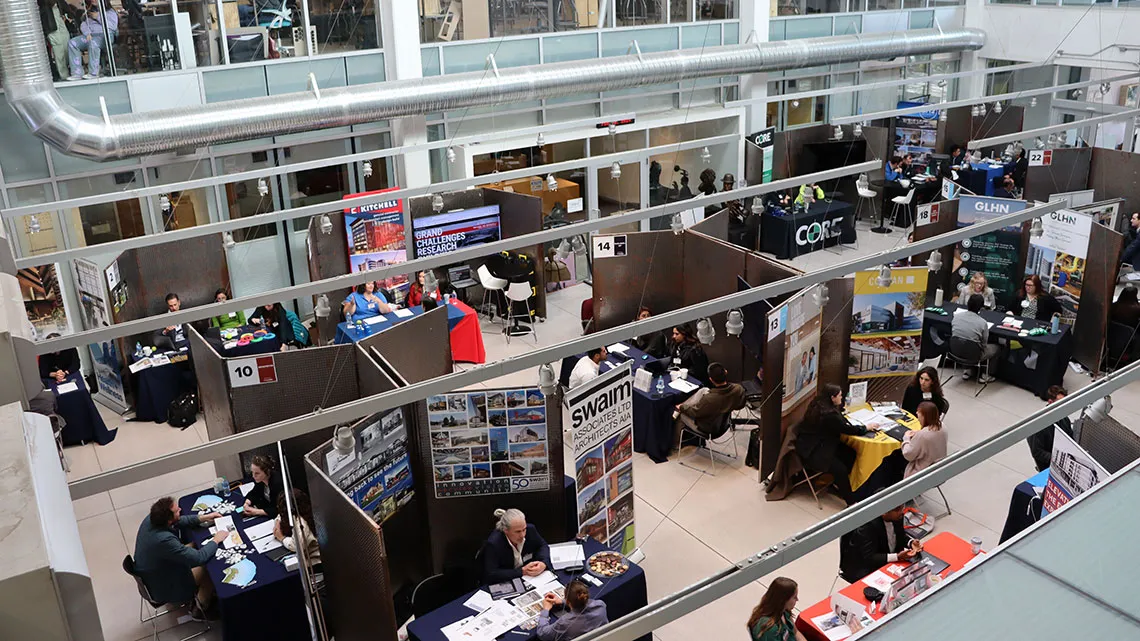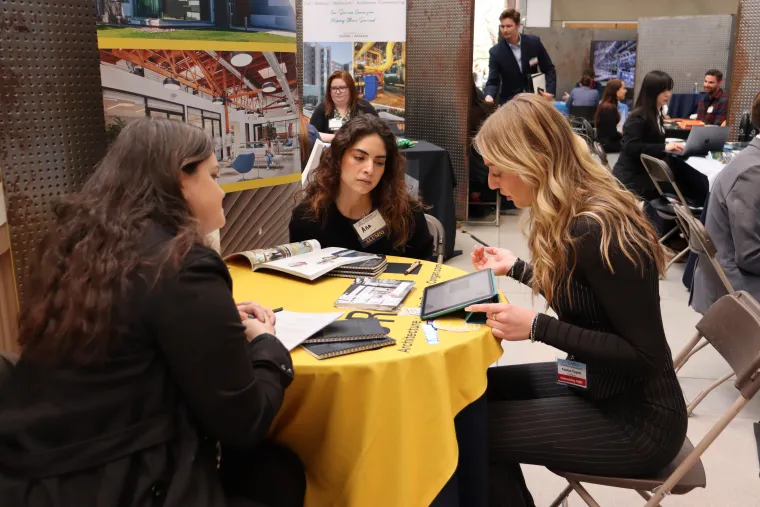CAPLA Students Put their Best Foot Forward During 14th Annual Job Interview Fair

Nearly 180 College of Architecture, Planning and Landscape Architecture students honed their interviewing skills and forged valuable connections with potential employers during the 14th annual College of Architecture, Planning and Landscape Architecture Job Interview Fair.
Sponsored by the Chasse Building Team and 34 other industry partners, the fair serves as a platform for students specializing in architecture, landscape architecture, real estate development, sustainable built environments and urban planning to explore career opportunities in the built environment.
“This is a popular event for both industry partners and students,” said Nancy Pollock-Ellwand, dean of CAPLA. “Our industry partners have the opportunity to meet firsthand our extraordinary students and our students get the opportunity to secure possible jobs or internships and practice the essential art of interviewing.”
To help students prepare for their 25-minute interview sessions with employers, portfolio workshops, information sessions, and interview panels were offered leading up to the fair itself.
Louis Narcisi, a fourth-year Bachelor of Architecture student, said he felt confident coming into the fair this year because of the thorough preparation he received.
“I’m so used to presenting in front of large groups of people now that I’m a fourth-year student,” Narcisi said. “It just feels like clockwork and almost natural to sit in front of an interviewer, talk and just get to know these people – it has felt more like I’m talking to my friends rather than talking to a potential employer.”
Narcisi, who interviewed with representatives from BRR, WJE and SmithGroup, specifically sought out WJE because of their historical preservation work in Chicago, his hometown.
Many of the visiting firms were represented by CAPLA alumni.
Kaya Orona, B. Arch ’23, now a project designer for SPS+ Architects, vividly recalls her own experience sitting across from interviewers during the fair. She was able to secure an internship with SPS+ Architects during her second year as an architecture student, which eventually led to a full-time position after graduation.
“Coming back, it feels a little like home because it’s what I’ve been comfortable with over the last five years,” Orona said. “I know what it feels like to be on the other side of the table, but I would just encourage students to network and put their best foot forward. The offers will come in.”

Representing Norris Design during the Job Interview Fair were Jason Kuklinski, principal and managing partner, and Amy Peron, landscape architecture and senior associate. Kuklinski, a 1998 graduate in landscape architecture, and Peron, who earned her bachelor’s in Sustainable Built Environments in 2015 and master’s in landscape architecture in 2018, praised the caliber of students they interviewed.
“The quality of the students gets better every year,” Kuklinksi said. “I’m definitely impressed by the overlay of sustainability and social activism…that I see in their work and hopefully we get to work with some of them in the future.”
Peron, who looks forward to the fair each year, enjoys seeing students’ growth and maturity.
“Just to see that progression makes it exciting for the future when the students finally graduate and come on full-time,” Peron said.
Organizations interested in sponsoring CAPLA's 15th Annual Job Interview Fair in February 2025 may contact Emilio Romero.



